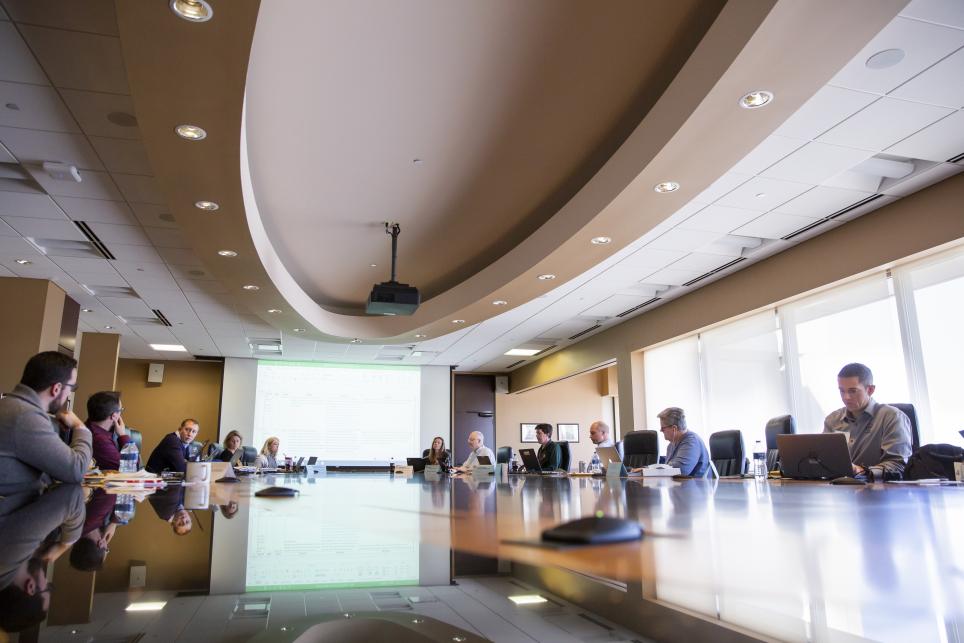-
Press Release
April 1, 2020
Underwriters Laboratories Publishes UL 4600 Autonomous Vehicle Standard

UL 4600 addresses evaluation of autonomous products
NORTHBROOK, lll. – April 1, 2020 – Underwriters Laboratories announced today that it published UL 4600, the Standard for Safety for the Evaluation of Autonomous Products – its first Standard addressing autonomous vehicles and other applications.
The Standard’s scope includes safety principles and processes for evaluating autonomous products with no human driver supervision, meaning that the vehicle is to be fully autonomous. It requires a safety argument along with topics including risk analysis and safety-relevant aspects of design process, testing, tool qualification, autonomy validation, data integrity and human-machine interaction for non drivers, among others. UL 4600 is technology neutral, meaning that it does not mandate the use of any specific technology in creating the autonomous system, and it also permits design process flexibility.
UL 4600 does not define performance or pass/fail criteria for safety, nor does it cover road testing or acceptable risk levels. Furthermore, the Standard does not set forth requirements for ethical product release decisions or any ethical aspects of product behavior.
The Standard is available for purchase in digital or print formats at shopULstandards.com, where it can also be viewed online for free using UL’s Digital View functionality. Registration is required to use Digital View.
Underwriters Laboratories partnered with Dr. Philip Koopman of Edge Case Research to drive development of the Standard. Koopman is an internationally recognized expert on autonomous vehicle safety and brings more than 20 years of research experience to the collaboration.
“UL 4600 is a set of requirements and safety lessons learned that informs the contents of a safety case,” Koopman said. “This safety case approach provides the flexibility needed to help ensure safety without overly constraining the use of this quickly evolving technology.”
A diverse body of international stakeholders was convened by Underwriters Laboratories to participate on the Standards Technical Panel (STP) to develop the document. This group proposed content, shared knowledge, reviewed and voted upon the proposals and ultimately achieved consensus on publishing the first edition of UL 4600. Other stakeholders provided proposals and commentary via the online collaboration platform utilized by UL Standards.
“We are grateful to Dr. Koopman and the many stakeholders who so willingly shared their knowledge to contribute to the development of this Standard,” said Phil Piqueira, UL vice president, Global Standards. “This is an example of standardization keeping pace with emerging industries to help support safety while encouraging innovation and continued progress.”
“Uber ATG believes that voluntary industry standards that support the safe development and deployment of self-driving vehicles (SDVs) are an important consideration for all companies in this space. UL's new standard and their approach to standards development allows for rapid iteration and feedback, which is on pace with what our industry needs." said Uber ATG's Head of Safety, Nat Beuse. “Being a contributor to these conversations and driving consensus around some of the safety aspects of SDV development is a priority for Uber and the rest of the STP.”
STP members represent a broad variety of interests, including automotive manufacturers, trucking, robotics, aviation and government systems. Others participated on behalf of insurance companies, state and federal government transportation and regulatory agencies, universities and a consumer advocacy organization. International participation in the development process was strong, with members hailing from the U.S., Germany, United Kingdom, Sweden, China, Singapore and other countries.
UL 4600 will be evaluated on a continuous basis to maintain relevance and drive adoption. Proposals for additions and changes can be submitted by anyone and at any time via CSDS.UL.com.